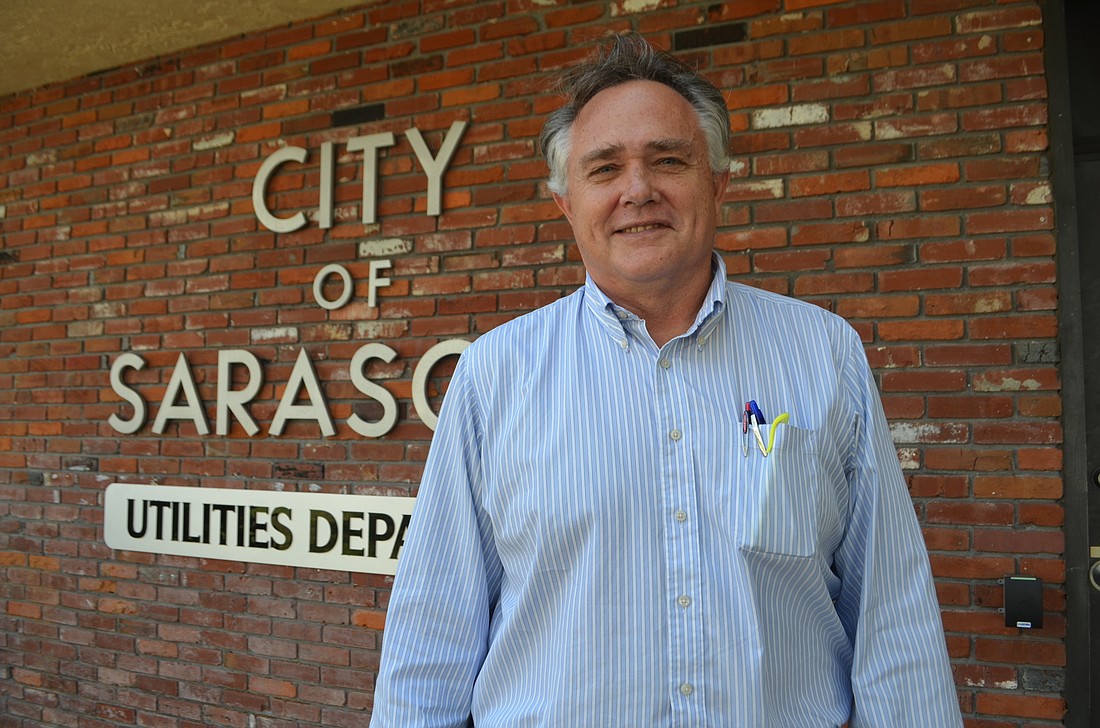- April 19, 2024
-
-
Loading

Loading

Is there anything wrong with Sarasota’s drinking water?
According to city Utilities Director Bill Riebe, it depends on how critical you want to be.
Don’t worry — city water complies with all federal and state safety standards. It definitely doesn’t pose a risk to residents, Riebe said.
But he says there’s room for improvement. He notes that treated water in Sarasota has noticeable levels of sulfate. That’s not a health issue, but it still has a perceptible effect.
“You can taste it in the drinking water,” Riebe said. “Some residents don’t like that taste. Some visitors don’t like that taste.”
That’s one of the reasons why city staff wants to partner with the University of Central Florida to conduct a two-year study of the city’s drinking water system. On Feb. 5, the City Commission voted 3-2 to move ahead with contract negotiations with UCF, foregoing a competitive bid process. The proposed cost of the study is $197,265.
Although the commission ultimately voted to proceed, the proposal drew concern from Mayor Shelli Freeland Eddie and Commissioner Hagen Brody. Brody questioned the need to study city water, and Eddie questioned the decision to select UCF without soliciting other bids.
Brody balked at the price, adding that he had not heard any complaints from residents regarding the quality of city drinking water.
“There’s no issue with the cleanliness of our water,” Brody said.
Both City Manager Tom Barwin and Vice Mayor Liz Alpert disagreed with Brody. Although the drinking water may comply with regulations, they believe the study may identify needed enhancements.
“I personally disagree with you that the water quality is good,” Alpert said.
Barwin said the study cost should be considered in the context of what the city spends on utilities annually.
“While ($197,000) does sound like a lot of money — and it is a lot of money — our utility budgets are in the range of $50 million overall,” Barwin said.
Riebe said the study is designed to examine five aspects of the city’s water system. Three of them are related to drinking water quality and removing sulfate.
Another one would see if the city could stop using water from Sarasota Bay as part of its ion exchange treatment process, which softens the water. Riebe said not using bay water would save money and improve reliability, if it’s feasible. The final study area would attempt to identify treatment processes for new contaminants that may be associated with future regulations.
The study is designed to focus on ways to save money in addition to improve quality, Riebe said.
Regarding the selection of UCF, Eddie said some of the costs associated with the proposed study appeared to be inflated. She didn’t object to the concept, but without a competitive bid process, she questioned how the city could be assured it’s getting a good value.
“I just don’t think this is the right way to get there,” Eddie said.
City Purchasing Manager David Boswell said there were several reasons staff wanted to proceed exclusively with UCF, but the main benefit was saving money. He said staff identified UCF because the school has a history working with the city’s utility system. If the staff solicited bids from private engineering firms, Boswell said the city would likely have to pay a higher price for people with a lesser pedigree.
“I would say $400,000 is what you would pay if you hired an engineering firm to do that,” Boswell said. “And that’s being conservative.”
Despite the concern from commissioners, Riebe and Boswell stood behind the decision to undertake the study.
“We want to say government is spending just as wisely as if it was the consumer itself,” Boswell said. “In this case, we looked at it, and we had the potential to save quite a bit of money in letting UCF do the research. We were within the regulations of the city and the state. It’s not like we were doing this secret underhanded thing.”